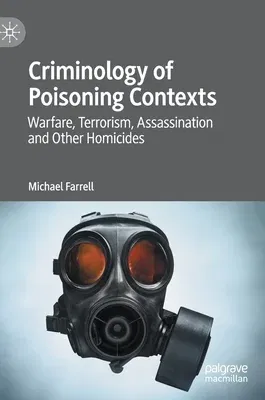Michael Farrell
(Author)Criminology of Poisoning Contexts: Warfare, Terrorism, Assassination and Other Homicides (2020)Hardcover - 2020, 17 March 2020

Qty
1
Turbo
Ships in 2 - 3 days
In Stock
Free Delivery
Cash on Delivery
15 Days
Free Returns
Secure Checkout

Print Length
216 pages
Language
English
Publisher
Palgrave MacMillan
Date Published
17 Mar 2020
ISBN-10
3030408299
ISBN-13
9783030408299
Description
Product Details
Author:
Book Edition:
2020
Book Format:
Hardcover
Country of Origin:
NL
Date Published:
17 March 2020
Dimensions:
21.01 x
14.81 x
1.42 cm
ISBN-10:
3030408299
ISBN-13:
9783030408299
Language:
English
Location:
Cham
Pages:
216
Publisher:
Weight:
426.38 gm